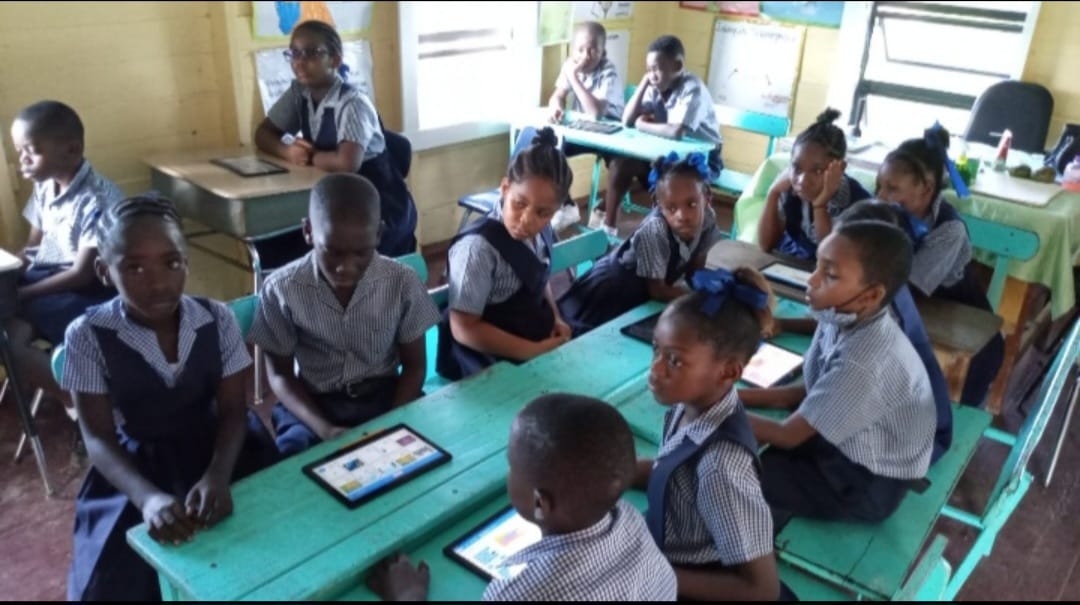The Learning Pods Program in Guyana is a response to the educational challenges faced by students after two years of the COVID-19 pandemic. It merges theory and practice to create a targeted program that aims to strengthen digital literacy skills, boost student engagement, and improve academic outcomes for these learners.
By integrating psychological and philosophical paradigms into the framework for the learning pods program, we are enriching the learning experience for students while presenting a promising model for the future of education in Guyana, the region and all communities of learners around the world. Our mission is to offer a glimpse into a future where education is more personalized, hands-on, and geared towards nurturing the whole child.
The learning pods program, spanning 41 after-school clubs across all 10 regions of Guyana, serves as a compelling testament to the power of blending diverse educational paradigms to enhance learning experiences. It provides a unique opportunity to explore the intersection of educational theory and practice.
At its core, the design of the Learning Pods Program is planned to leverage psychological paradigms that prioritize the mental and emotional development of learners. Social constructivism is alive within the program, fostering collaborative environments where students engage in group projects, peer teaching, and discussions. This approach not only facilitates the exchange of diverse viewpoints but also cultivates critical thinking and problem-solving skills. By embracing the idea that knowledge is collectively built and reshaped, the program embodies the essence of social constructivism.
Furthermore, cognitivist principles drive the program’s design, offering structured problem-solving tasks and memory exercises to challenge students’ cognitive faculties. These activities are instrumental in shaping adept learners capable of processing information and applying knowledge effectively.
Beyond psychological underpinnings, the program is deeply rooted in philosophical paradigms that emphasize the value of knowledge and the essence of learning. Pragmatism comes to life through real-world problem-solving and hands-on projects in the form of quarterly robot and coding challenges which require learning to work together, bridging the gap between theoretical knowledge and practical application.
Existentialism is also evident in the program’s flexible curriculum, allowing students to explore personal interests and undertake self-directed projects in their technology module. By fostering an environment that values personal choice and autonomy, the program instills a sense of ownership and intrinsic motivation among learners.
The Learning Pods Program in Guyana represents an innovative educational approach where psychological and philosophical paradigms converge to create a holistic learning experience. It underscores the transformative potential of integrating diverse educational theories and practices. This initiative produces academically proficient and emotionally intelligent, socially aware, and philosophically grounded learners equipped to tackle the challenges of the 21st century. It is a testament to the power of education that values the holistic development of individuals and prepares them for a dynamic 21st century world.
